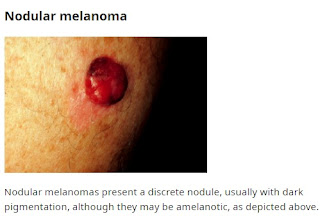Melanoma: Most Serious Type of Skin Cancer

Melanoma is the most serious form of skin cancer. In the United States, it is the fifth most common cancer in men and women; its incidence increases with age. As survival rates for people with melanoma depend on the stage of the disease at the time of diagnosis, early diagnosis is crucial to improve patient outcome and save lives. Although most melanomas are detected by patients themselves, clinician detection is associated with thinner, more curable tumors. Most patients with thin, invasive melanoma (Breslow thickness ≤1 mm) can expect prolonged disease-free survival and likely cure following treatment. Melanoma is a type of skin cancer that originates from melanocytes, the cells responsible for producing melanin. It accounts for a significant proportion of cancer-related morbidity and mortality worldwide. This section provides an introduction to melanoma, its classification, and the global burden of the disease. The age-standardized annual incidence of melanoma worldwide is estim...